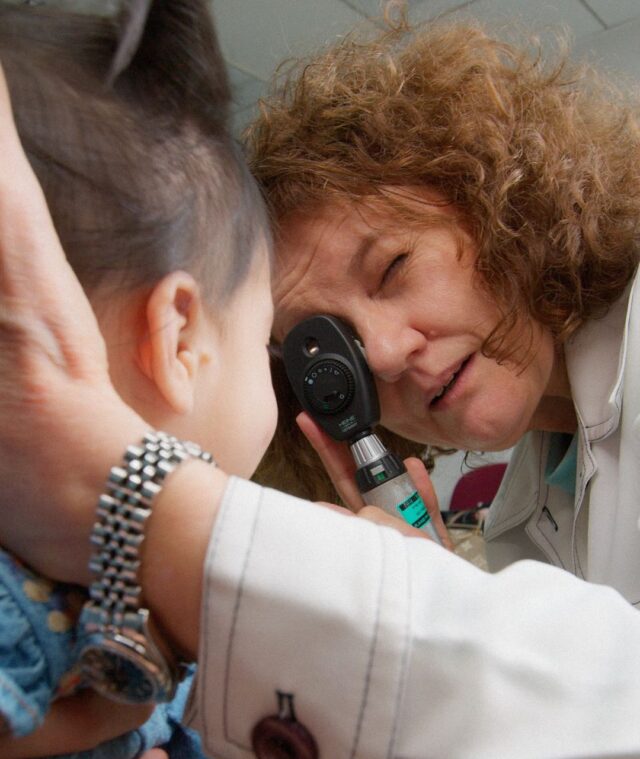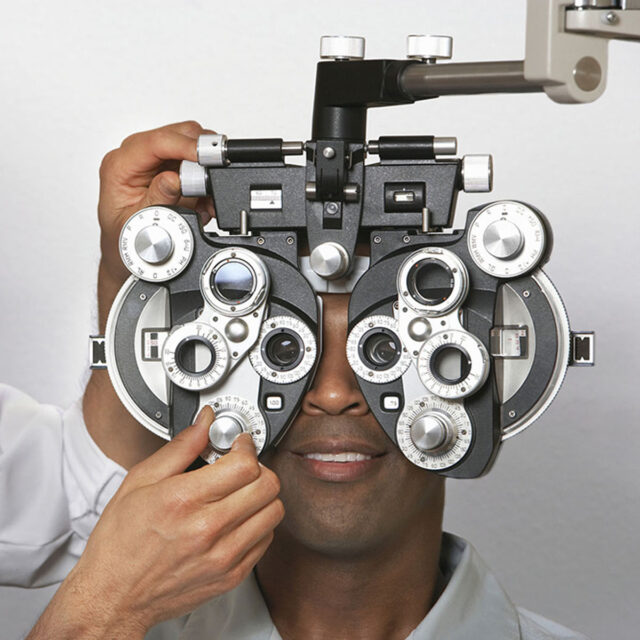In Focus:
- Getting an eye exam can start at an early age, detecting and preventing development issues.
- Excessive screen time can lead to paediatric myopia, sleep disorder and obesity, among other health problems.
- A vitamin- and nutrient-rich diet is vital to children’s eye health.
Why is August Children’s Eye Health Safety Month? The International Agency for the Prevention of Blindness (IAPB), a global alliance of eye health organisations, likely declared it as so because it’s when children return to school. It’s the ideal time to focus on children’s eyes health since vision problems can affect how they do in school.
What You Should Know About Children’s Eye Health and Safety
The IAPB reports that children with early onset vision loss can experience delayed motor, language, emotional, cognitive and social development. These may create lifelong consequences that extend beyond the classroom.
It’s vital to protect your children’s eye health and safety as early as possible. But where do you start?
Tips for Parents and Caregivers
As with any health concern, detection and treatment early on provide a good start. Here are a few essential tips to help you look after your child’s eye health and ensure their safety.
Take your child to an eye doctor.
An eye exam is not always about getting your child prescription glasses. Regular eye exams with a paediatric eye doctor in Dubai will see how your child’s visual development is progressing. In general, you can take your child to a paediatric ophtalmologist at an early age of five to detect development issues. If there is a family history of eye problems, it may be best to get an eye check up for your child at an earlier age.
The size of children’s eyes continually develop until they’re 12. Newborns begin as farsighted since the size of their eyes is still small. When their eyes develop naturally, the farsightedness reduces until their vision is just right. However, nearsightedness develops when the eyes continue to grow, elongating the eyeball to the point where making out objects at a distance becomes difficult. The child then will need glasses to see better.
Emphasise the importance of washing hands.
Good hygiene is the cornerstone of good health, and clean hands are a big part of it. Germs easily transfer from the hand to the eye, which can sometimes result in pink eye or conjunctivitis. Children may not be too keen to wash their hands before eating, after they’ve played outside, or sneezed, so it’s important to help them develop the habit early on.
It’s easy enough to get conjunctivitis eye treatment, but we find that prevention is always best.
Limit screen time on devices.
Excessive screen time has become all too common. From school to down time, children will spend more than a couple of hours a day on their computer, mobile phones, tablets or the TV. Too much screen time affects not only their eyes but also their health, increasing their risk for paediatric myopia (nearsightedness), sleep disorder and obesity.
Although children’s eye health and safety awareness month is a good time to set or reinforce ground rules for screen time, remember to sustain them.
Some ways to limit screen time are:
- Encouraging your children to play more outdoors; join them during playtime and use the opportunity to bond more.
- Schedule screen-free hours (or days), making sure the digital devices are put away.
- Designate phone-free zones in the home. Other than the dining room, maybe the study room or family can also be phone-free spaces.
- When they’re studying on a computer or tablet, make sure they practise the 20-20-20 rule: every 20 minutes, they should look at an object that’s 20 feet away for at least 20 seconds.
Ensure eye protection for your children.
Dubai heat can be intense, so you make sure your children have sunblock. But the sun’s ultraviolet rays can also be quite harsh on the eyes, especially with increased exposure. When outdoors, make sure your children have eye protection with sunglasses and hats.
If your children play sports, make sure they wear goggles or guards. Protective eye gear will limit the impact of injuries while on the field or on the court.
Instil proper nutrition.
A vitamin- and nutrient-rich diet is crucial to eye health. What should you stock up on?
- Fish rich in omega-3 fatty acids reduce dry eye and reduce the risk of cataracts
- Oranges, mangoes, strawberries and other fruits high in vitamin C and E prevent infections and restore tissues
- Spinach, kale and other leafy greens rich in vitamin A help fight dry eye
Signs of Eye Health Problems in Children
How do you know your children may be struggling with their vision? Look for the following signs.
- Squinting a lot to view an object
- Rubbing their eyes more frequently than other kids
- Covering one eye to try and look at something
- Losing their place when reading, which could be a sign of lazy eye or amblyopia in children
When you want to know more about vision care and eye health, use the hashtag. What is the hashtag for Children’s Eye Health and Safety Month? It’s #ChildrensEyeAndSafetyMonth, which you can also use to share valuable information and to advocate for children’s eye health.
The Highest Level of Eye Care for Your Children
Prioritising your children’s eye health today ensures good vision and overall health for them in the future. At Gulf Family Clinic, we provide the highest level of eye care, helping you ensure they reach their full potential throughout their crucial development years.
Find the best paediatric eye doctor in Dubai today.








